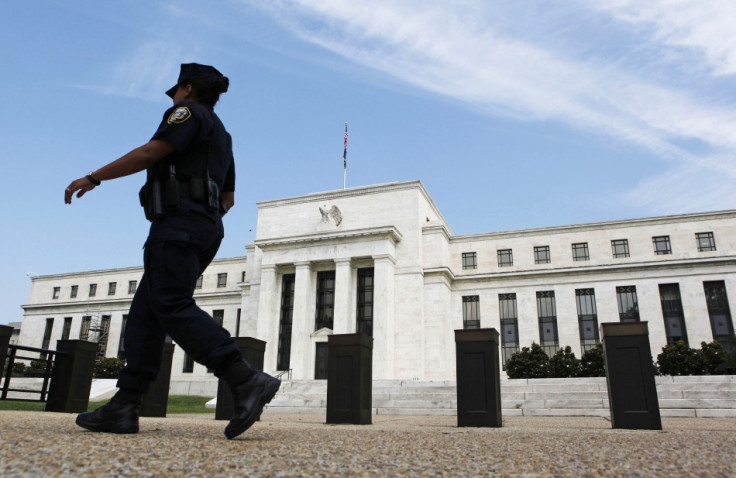US Fed Eyes Imminent Asset-Buying Stimulus Reduction

The US Federal Reserve is widely expected to start paring back on its $85bn a month bond-buying stimulus after the September meeting of its policymakers.
Economists have predicted that the Fed could reduce its asset buys by a "modest" $10bn ($6.26bn, €7.5bn) per month.
The world's most powerful central bank is expected to announce its monetary stimulus decision in a statement at 2pm ET (19:00 BST) on 18 September, after it wraps up its two-day Federal Open Market Committee (FOMC) meeting.
Fed Chairman Ben Bernanke will address a press conference after the meeting and may provide clarity on the future pace of the Fed's asset buys.
It could be Bernanke's last press conference as he will step down at the end of January, 2014.
As such, the herculean task of withdrawing the Fed's unprecedented monetary stimulus without triggering a currency crisis in emerging markets could be left to Janet Yellen.
She emerged as the frontrunner for the top job after previous competition favourite Larry Summers revealed he was not running for Bernanke's position.
"With markets already pricing in a $10bn per month reduction in bond purchases, Ben Bernanke's forward guidance on interest rates will be a key concern for investors, if there are no surprises on the tapering front," said Tim Radford, global analyst at Rivkin Securities.
"We expect Bernanke's press conference to be dovish. The Fed will want to temper market expectations that tapering will be rapid or that FOMC participants have brought forward their expectations for the first increase in rates," said Joseph Capurso, currency strategist at Commonwealth Bank of Australia.
The Fed will also put out quarterly economic and interest rate projections during the day.
However, "they will be hesitant to put in any more explicit forward guidance," said Dean Maki, chief US economist at Barclays Capital in New York.
"They really cannot credibly say a lot about 1-1/2 years from now."
Loose Policy
The Fed cut interest rates to almost zero in late 2008, at the height of the financial crisis.
Since then, it has more than tripled the size of its balance sheet to around $3.6tn through three massive rounds of bond-buying, designed to hold down longer-term borrowing costs.
The central bank's moves stimulated the US economy and global markets in the years following the financial crisis.
Economic data shows that the world's leading economy is improving, suggesting that it is ready for a cutback in monetary stimulus.
The number of Americans filing new claims for government-funded jobless benefits dropped to a more than seven-year low in the week ended 7 September. The jobless rate stood at 7.3% in August, much higher than the Fed's unemployment threshold of 6.5%.
The US economy expanded 1.7% in the second-quarter, beating expectations of a 1% expansion. It logged a 1.1% growth rate in the first quarter. Consumer prices remained stable in the second quarter, with so-called 'core prices' rising 0.8%, well below the Fed's 2% target.
Spillover
Critics argue that a cutback could lead to a detrimental knock-on effect for both advanced economies as well as emerging markets.
Earlier in the month, the OECD said that ongoing work to repair the European banking system and the eurozone's consistent fragility, as well as the looming prospect of a Fed tapering, threaten to derail an emerging post-financial crisis recovery.
In August, China warned the Fed that it must contemplate the timing and the pace of its planned stimulus taper to prevent any "spill-over effect" on emerging market economies.
A Fed statement in July said the central bank would continue buying mortgage and treasury securities to further strengthen the US economy, which it said was still challenged by federal austerity measures. Earlier, Bernanke told the US Congress that there was no set deadline for the central bank's QE tapering.
In June, speaking at a press conference, Bernanke said the Fed could begin pruning its asset buys later this year if the US economy continues to improve, as officials expect it to, and could end its purchases by mid-2014.
© Copyright IBTimes 2025. All rights reserved.






















